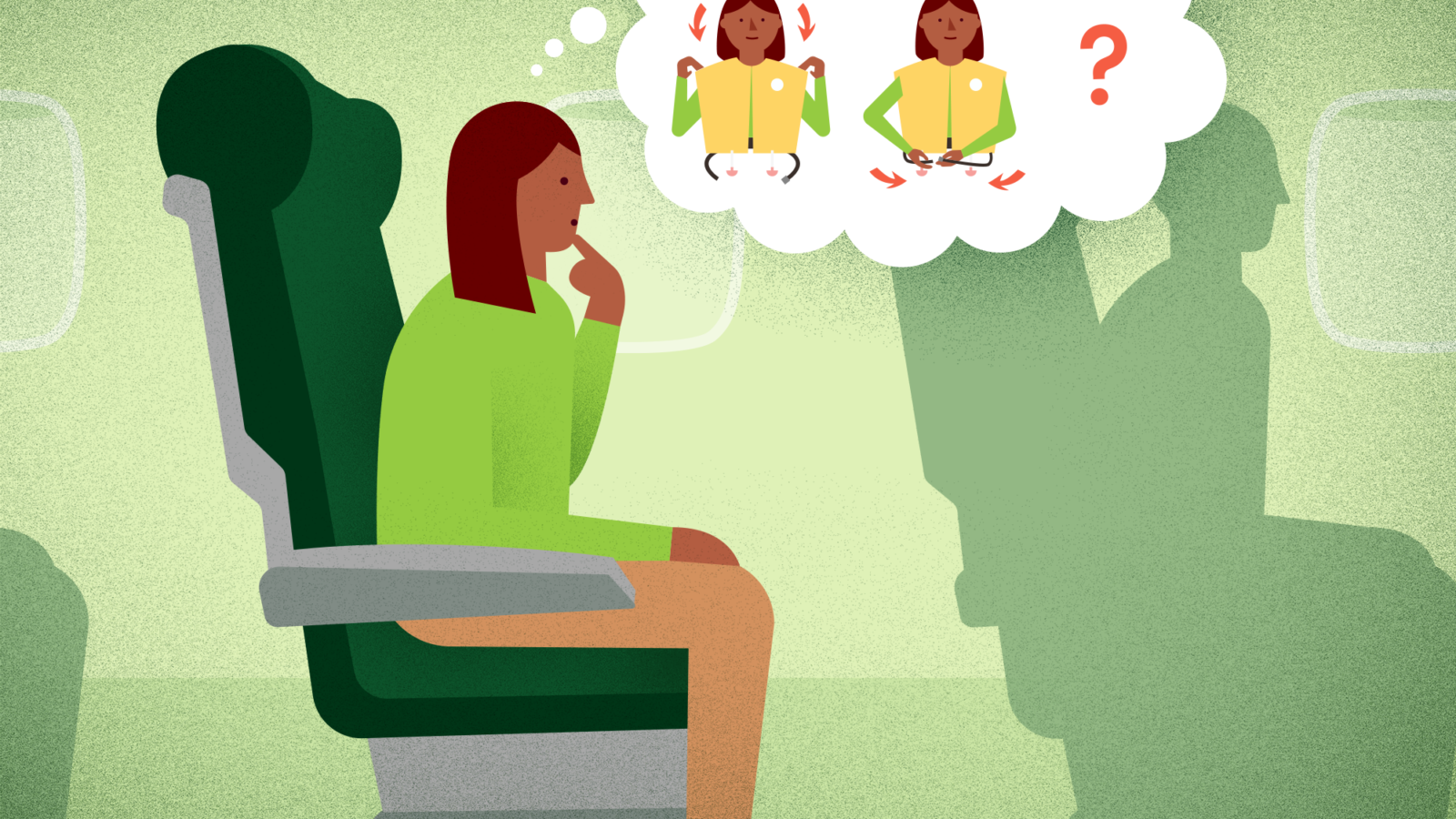Today, I’ve asked Robert A. Bjork to share his Tip of the Week. This is the last in a four-part series on learning. You can read the first one here, the second here, and the third here.
Years ago, after watching a flight attendant demonstrate how to put on an inflatable life vest, I thought to myself, “Oh, man, how many times have I seen this demonstration—50 times? A hundred?”
Something made me wonder, though, “Do I really know how to do this?”
I closed my eyes and imagined the plane was down in the water, that some people were screaming and I could smell smoke. It seemed surprisingly real, and I started to feel panicky. Where was the vest? Under the seat, but was it just hanging there or in some kind of bag I had to open?
I imagined finding and unfolding the vest, then getting panicky again when I was unsure which side was the front. After getting the vest over my head and pulling on some straps to tighten it, I imagined inflating the vest. Only when I reached an exit row did I remember I was not supposed to inflate the vest until after getting through the exit window—and I imagined other panicky passengers trying to push me and my inflated vest through the window.
Research shows that watching someone else perform a skill isn’t the same as doing it yourself, just like rereading information doesn’t prepare you to actually recall information when it’s time to take a test.
The act of what scientists call retrieval practice—forcing yourself to recall previously learned material—is far more effective. When you test yourself and get things wrong, you’re not making a mistake. You are identifying what needs to be studied—or perhaps studied again.
That’s why, when giving a talk at the air traffic control center in Oklahoma City, I suggested that airports should have a room where passengers could practice putting on a life vest or oxygen mask. Doing the activity even once is worth more than dozens of passive observations of flight attendants’ demonstrations. After completing the exercise, you could get a little lapel pin saying, “Follow me! I know how to get out of the plane.”
Don’t think you can do something just because you’ve seen someone else do it. Watching a cooking show doesn’t make you a chef.
Do help young people recognize the benefits of retrieval practice. Students can create summaries as review sheets or get together with friends to quiz each other. As the old adage goes: “Tell me and I forget, teach me and I may remember, involve me and I learn.”
With optimism and encouragement,
Bob
Robert A. Bjork is a distinguished research professor in the department of psychology at the University of California, Los Angeles.
Originally published on Character Lab. Sign up here to receive Tip of the Week by email for free (no spam ever, we promise!)


